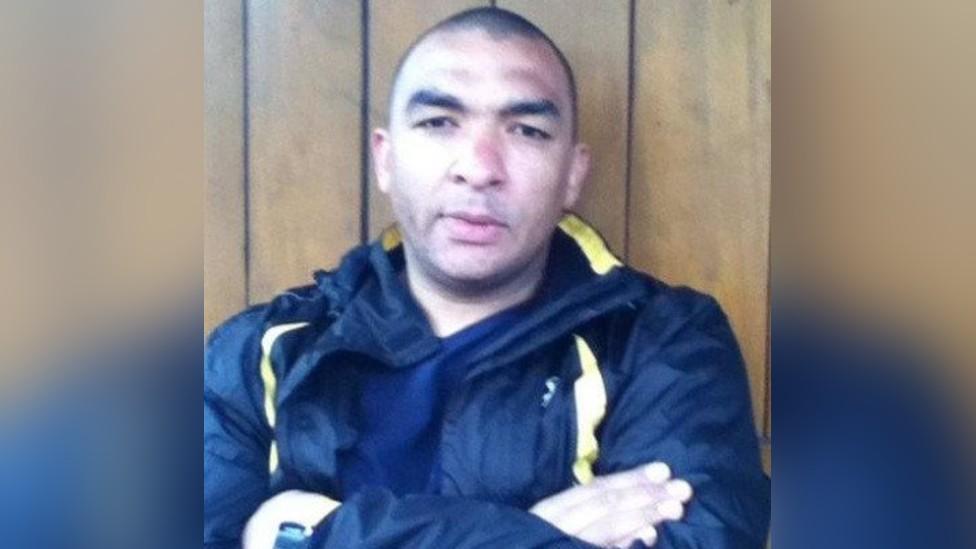Leon Briggs: Police treatment of man before death was 'shocking'
- Published
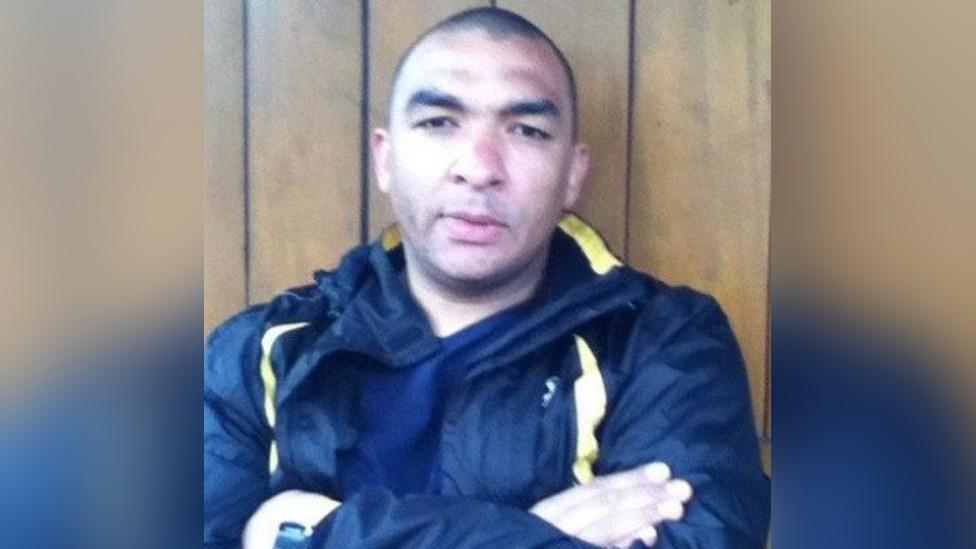
Leon Briggs died in hospital after being restrained and detained under the Mental Health Act at Luton police station
The way a man was treated in police custody before he died was "shocking", an inquest heard.
Leon Briggs, 39, died in November 2013 after being detained at Luton police station under the Mental Health Act.
CCTV footage showed police officers leaving Mr Briggs lying face-down in a cell before he became unresponsive and fell silent.
PC Peter Baron told the jury the father-of-two should have been put in the recovery position.
Leon Briggs: CCTV shows man unresponsive in cell before death
The inquest has heard how officers were called to Marsh Road in Luton on 4 November due to concerns about Mr Briggs's behaviour.
He was restrained face-down in the street, handcuffed and placed in leg restraints, before being taken to Luton police station.
The father-of-two was detained in a cell at about 14:25 GMT under the Mental Health Act. He became unconscious and was pronounced dead in hospital at about 16:15.
The inquest in Milton Keynes heard his primary cause of death was "amphetamine intoxication with prone restraint and prolonged struggling".
A secondary cause of death was given as coronary heart disease.
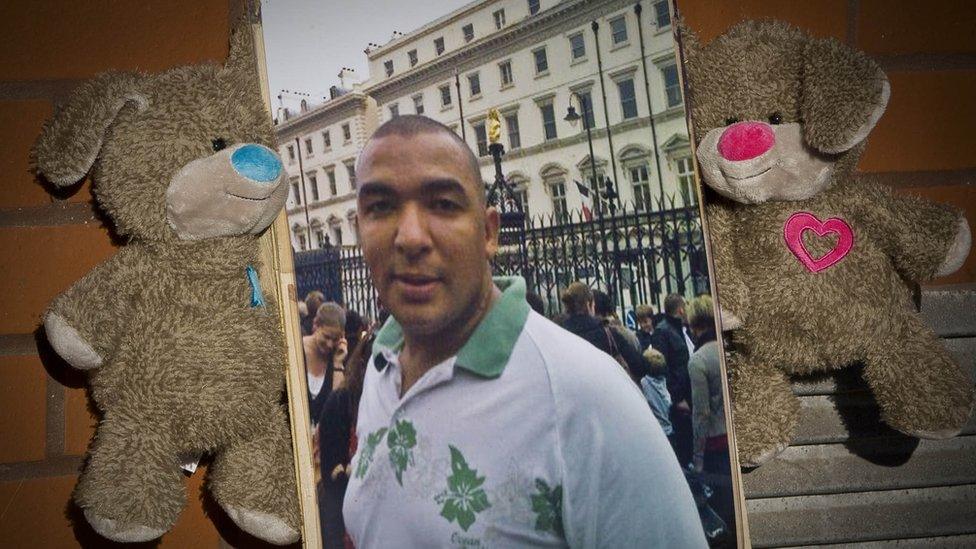
Mr Briggs was described as "a really good dad" who loved spending time with his children
After having leg restraints and handcuffs removed, Mr Briggs was left lying face-down in the cell.
After a few minutes, he fell silent and stopped moving, but officers made "no immediate" attempt to check on him, the inquest heard.
PC Baron, who had been holding Mr Briggs's legs, told the inquest he and his colleagues "should have picked up on what was happening".
Representing Mr Briggs's family, Dexter Dias QC said: "There were many indicators he was in desperate medical distress.
"It is shocking that none were acted upon, don't you agree?"
PC Baron replied: "Yes, sir."
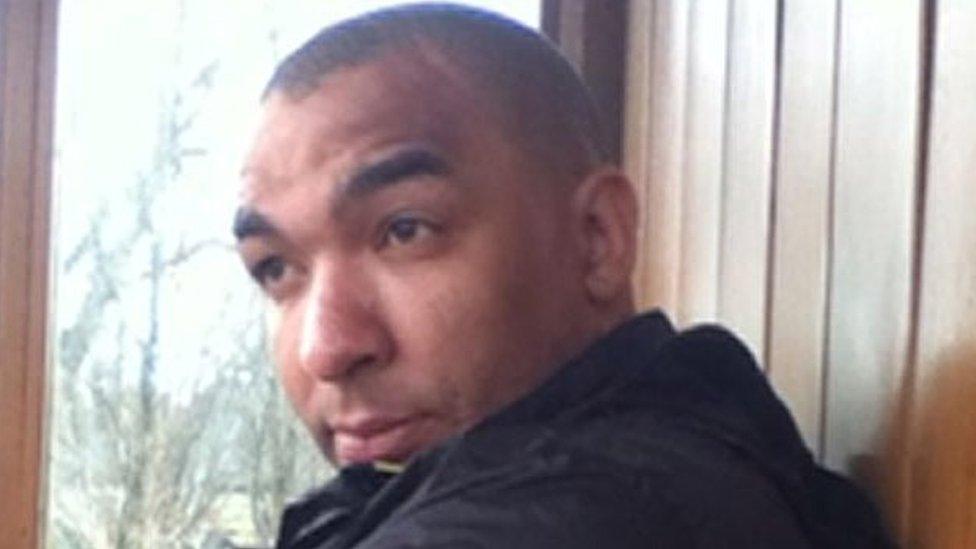
The jury was told that Mr Briggs was having "an acute mental health crisis" during the incident
Mr Dias asked why the lorry driver was restrained in the prone position, which can have a "dramatic effect on people's physical condition".
"He should have been put in the recovery position," PC Baron replied.
"However, that's not something we do when we're carrying out the cell extraction technique."
Mr Dias said cell extraction is used when someone is being "aggressive", but Mr Briggs "was not being aggressive in the cell".
PC Baron told the jury that after seeing the CCTV footage he realised Mr Briggs "was struggling", but at the time he thought he was "being aggressive".
He later told the jury: "I'm a human at the end of the day, I'm a person first, a police officer second.
"I'm as capable as anyone of making mistakes, especially in situations that are highly stressful like this one was."
He added: "I've missed things because I'm not solely focused on what's going on, because of what's happened, and we're trying to get everything right, so we've missed important things."
The inquest continues.

Find BBC News: East of England on Facebook, external, Instagram, external and Twitter, external. If you have a story suggestion email eastofenglandnews@bbc.co.uk, external
Related topics
- Published4 February 2021
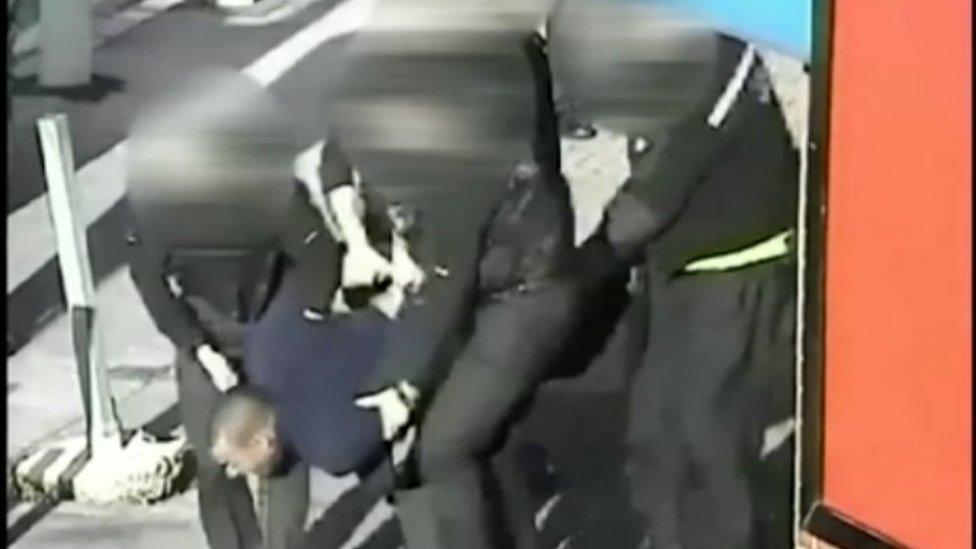
- Published4 February 2021

- Published2 February 2021

- Published1 February 2021

- Published28 January 2021

- Published27 January 2021

- Published26 January 2021
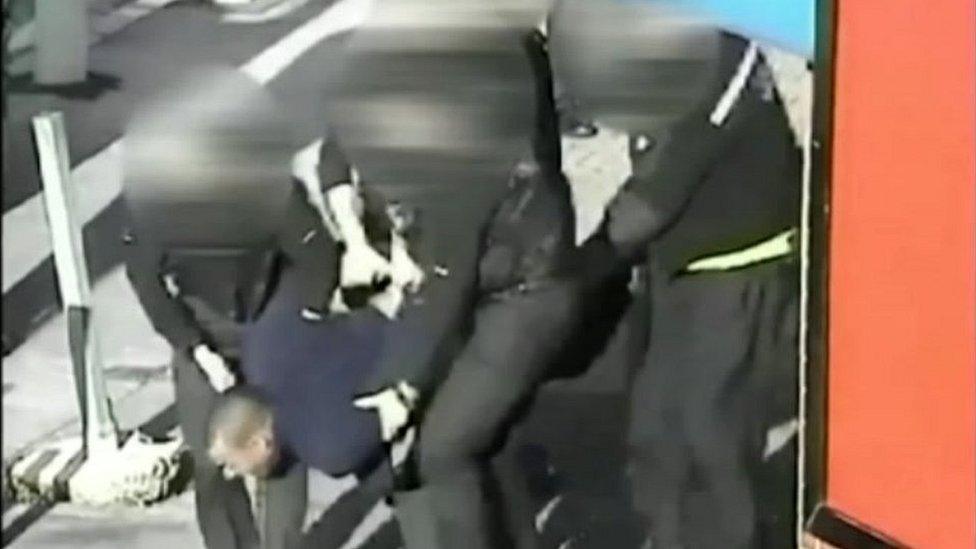
- Published25 January 2021

- Published21 January 2021

- Published19 January 2021

- Published18 January 2021

- Published14 January 2021

- Published13 January 2021
